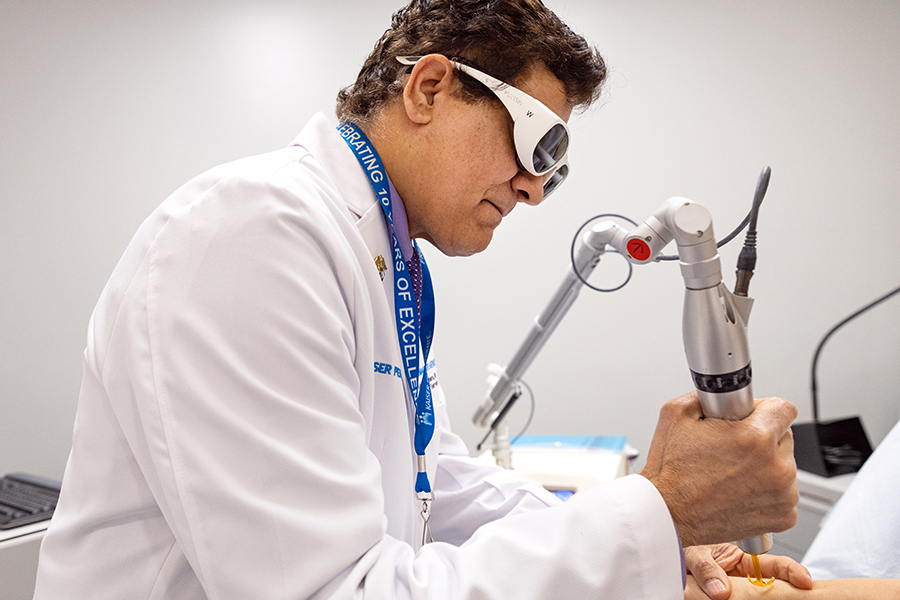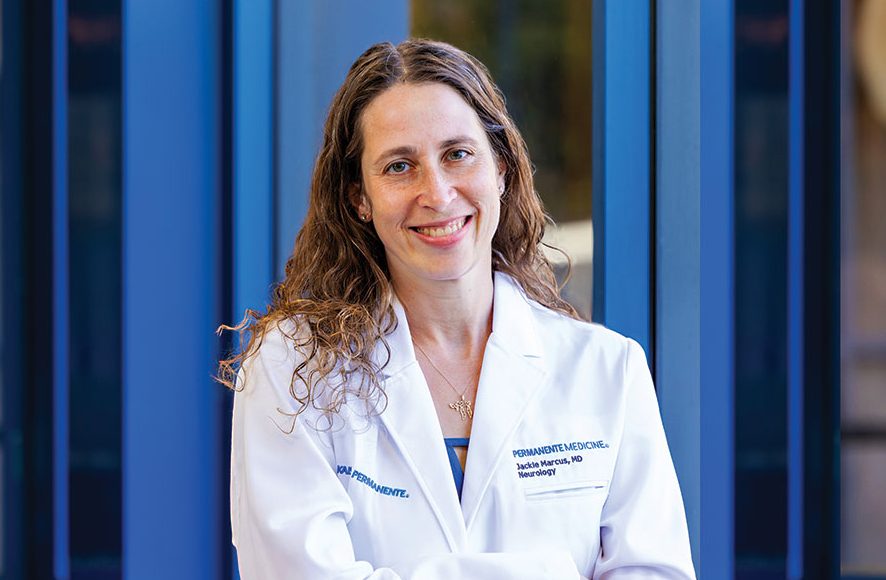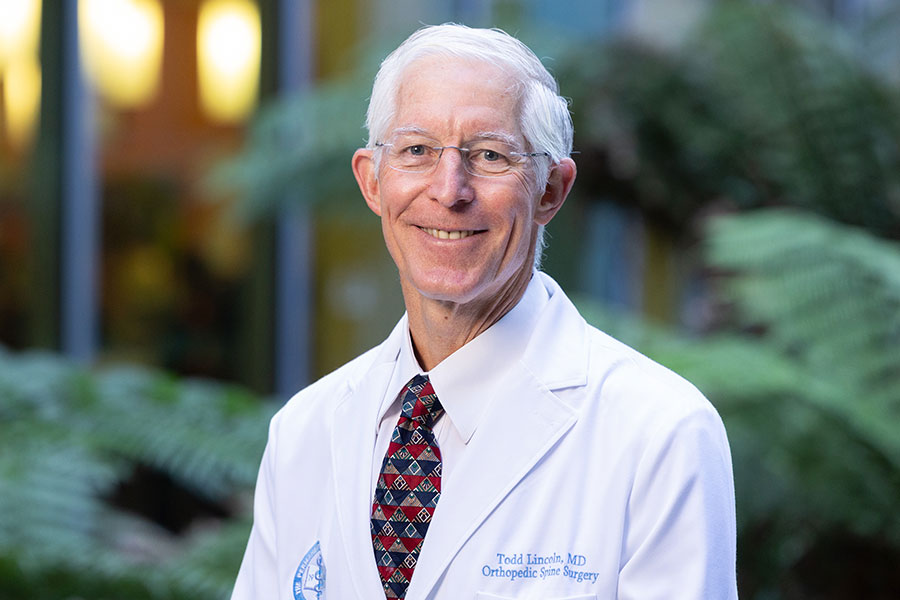This story was originally published in September 2017 in Permanente Excellence, a publication of The Permanente Medical Group.
Approximately 1.4 million adults identify as transgender in the United States, which is double the estimate from a study nearly a decade ago, according to a June 2016 report by the Williams Institute at UCLA Law School. Based on federal and state data, the analysis also estimates that more than 218,000 live in California. Kaiser Permanente Northern California estimates approximately 33,000 of our adult members may identify on the transgender spectrum.
In 2013, The Permanente Medical Group decided it was time to internalize our approach for these patients with a comprehensive transgender health program that integrates primary care, behavioral health, endocrinology, dermatology, gynecology and multiple surgical subspecialities, including gender-affirming surgical services and genital reconstructive surgeries.
“The goal of our program is to ensure our transgender and gender-nonconforming patients and their families are taken care of with the highest quality, culturally responsive care,” says Stephen Parodi, MD, TPMG associate executive director with accountability for the service.
“Our program is not only about transgender-specific services,” he continues. “It’s about providing a high standard of medical care and making patients feel they are in a welcoming, supportive environment, regardless of their gender identity or the reason for their visit. This type of care reflects the values of Permanente medicine.”
The strong partnership between TPMG and Kaiser Foundation Health Plan and Hospitals (KFHP/H) plays a significant role in this comprehensive approach. “We work together to ensure that at every touchpoint, transgender and gender-expansive patients are treated with clinical expertise, respect and dignity,” says Barbara Crawford, vice president of Quality and Regulatory Services for Kaiser Foundation Health Plan and Hospitals in Northern California.
Defining the spectrum
At present, the term transgender refers to patients whose gender identity differs from the sex they were assigned at birth. They may or may not be considering specific treatment for gender transition; they may be in the process of transitioning; or they may have already transitioned when they enter our care. We provide care for patients at all stages, and offer support for their families and loved ones.
Gender-nonconforming or nonbinary patients are those who do not identify with the traditional gender categories of male or female. These adults and children may identify as both male and female, neither male nor female, in between genders or outside the gender spectrum.
“Our transgender care team understands gender identity and expression are more complex and more layered than these two categories, so we attempt to individualize our care approach to support the unique needs of each patient,” explains Erica Metz, MD, TPMG’s medical director for transgender health and director of the Gender Pathways Clinic at the KP San Francisco Medical Center.
To help ensure the transgender community is understood and their needs are addressed, Kaiser Permanente Northern California launched a regional Transgender Member Advisory Council in 2016. This group comprises KP members in the Bay Area who identify as transgender or gender nonconforming. Jim Kelleher, executive director of transgender services for KP Northern California Quality and Regulatory Services, co-chairs the advisory council with Saralinda Jackson, assistant medical group administrator at KP Oakland.
“The mission of the council is to construct and advocate for competent, consistent and high-quality holistic care, so that we can continue to help move this work forward,” says Mr. Kelleher, who notes the group is currently focusing on care navigation and cultural competencies. Planning is also underway to establish a Sacramento Area Transgender Member Advisory Council.
Transgender program care paths
Since 2013 transgender and gender-nonconforming patients who are seeking specialized transition-related care or evaluations for surgery can see clinicians at either the Multispecialty Transitions Department at KP Oakland or the Gender Pathways Clinic at KP San Francisco. Both provide multidisciplinary services, including hormone management, behavioral health, gynecology, surgical consultations, nursing-care coordination and social work.
Gender-affirming surgeries such as chest reconstruction and feminizing procedures are provided in a few subregional locations, while the highly complex genital reconstructive surgeries are performed at KP San Francisco.
“It has been exciting to see how quickly we have mobilized our transgender care programs,” says Dr. Metz. “Our long-term vision is to provide education and support so that all medical centers throughout KP Northern California will provide gender-affirming primary care, behavioral health and other routine care for transgender and gender-nonconforming patients—meaning patients will be able to access this care closer to where they live.”
Gender-affirming surgery
Gender-affirming surgery and associated consultations are provided at KP San Francisco. Previously, some patients were referred to surgeons outside the Kaiser Permanente system for genital surgeries.
“One of the challenges we face when patients get their care outside of our integrated system is gaining clear insights into how patients are doing,” says Dr. Parodi. “What are their outcomes? How many complications are they having? How do we improve performance?”
TPMG now has a cadre of surgeons performing these surgeries, led by Ali Salim, MD, chief of Plastic and Reconstructive Surgery at KP San Francisco who serves as the regional transgender surgery lead. An expert microvascular surgeon, Dr. Salim was interested in learning gender-affirming surgery, but only a few surgeons in the United States were accomplished at performing genital reconstructive surgeries, so training opportunities were limited.
Dr. Salim learned complex phalloplasty and vaginoplasty procedures from surgical experts in Belgium, Serbia and Amsterdam from 2014 through 2016. He brought these surgical skills back to KP San Francisco.
“There was such a small number of surgeons—an historical shortage of surgeons—that patients seeking care had to wait several years for surgical care with contract surgeons,” Dr. Salim says. “In our program, we now have plastic surgeons, gynecologists, a urology team led by Carl Thomas, MD, and both colorectal and head and neck surgeons involved.
“I am proud to say that we were able to bring gender-affirming surgery in house,” he continues. “We now have a surgical center of excellence at KP San Francisco, where we offer our comprehensive approach to care.”
New tools and research
There is ongoing work to refine KP HealthConnect to capture important patient information for transgender patients. A new tool, called SOGI (Sexual Orientation/Gender Identity), was launched in 2016. It enables clinicians to document a patient’s sex assigned at birth, gender identity, preferred pronouns, current sex organs, transition plans and surgical history.
Documenting this information enhances culturally responsive care by helping staff and clinicians identify the name and pronouns that are used by the patient, even when these are different from the legal name and gender marker on the medical record. Collecting this data is also critical because it will allow us to examine quality outcomes for this previously unrepresented demographic group. To date, there is not sufficient research about the health of people on the transgender spectrum who have unique care needs and may experience systemic barriers to health care access.
To further these research goals, Kaiser Permanente’s Northern California, Southern California and Georgia regions are participating with Emory University and the U.S. Veterans Administration in a new study funded by the Patient-Centered Outcomes Research Institute (PCORI) in Washington, DC. The project will examine long-term health outcomes for thousands of transgender and gender nonconforming people.
“Transgender care is a complex field because a classical clinical pathway has not been defined yet,” says Dr. Parodi. “With cardiac care, for example, treatments and procedures are evidence-based and supported by research. Our team is working to define our clinical pathways so that if a patient says, ‘I’m considering surgical care,’ we have a process to help get them the care they need. It’s not a fragmented approach; it’s an integrated approach.”
“Our programs are developing in an evolving field, at an incredibly important time, very quickly, responsively, and with a lot of dedication,” adds Dr. Metz. “We are committed to helping our physicians and staff understand how to provide this care in a culturally responsive and sensitive way.”






